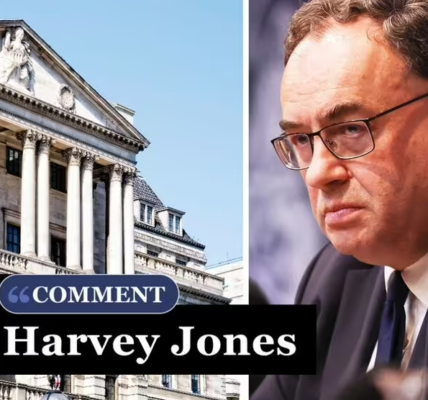The UK comes 30th out of the 38 largest developed nations in list of how pro-growth their tax systems are.

Chancellor Rachel Reeves (Image: Getty)
Labour tax hikes at the upcoming Budget could damage UK competitiveness and growth, a leading think tank has warned.
Britain comes 30th in a group of 38 countries in the latest International Tax Competitiveness Index published today by the US-based Tax Foundation.
The Centre for Policy Studies said Britain’s ranking in the list of Organisation for Economic Co-operation and Development (OECD) nations will be a barrier to attracting foreign investment and is at risk of dropping further.
Daniel Herring, researcher for economic and fiscal policy at the think tank, said: “There’s a real danger that Britain could end up with one of the least competitive and most anti-growth tax systems in the OECD if the expected tax rises come to fruition in the budget.
“If Labour really wants long-term economic growth, it needs to get serious about fundamental tax reform.
“It’s not just about cutting taxes. The way we raise tax is damaging incentives, getting in the way of innovation, and undermining productivity.
“To not use this Budget to put the tax system on more pro-growth footing would be a wasted opportunity. Courage and vision are needed – the alternative is stagnation.”
Britain is below major economies including the US which is 18th, Germany in 16th place, Canada in 17th and Japan which is 25th.
Modelling by the CPS and the Tax Foundation shows that mooted increases to capital gains tax, dividend tax or the introduction of a wealth tax at next week’s Budget would further damage the UK’s competitiveness.
Raising capital gains tax would see Britain drop to between 32nd and 34th in the overall rankings, depending on the rate.
Hiking the higher rate of dividend tax to 45%, in line with income tax, would see the UK fall to 32nd place.
Britain would go down to 34th in the list if a wealth tax, which unions are calling for, was levied.
And if all the measures were implemented the UK could plummet to 35th place.
In this scenario, only France, Italy and Columbia would be left with less competitive tax systems than Britain.
The report calls on Chancellor Rachel Reeves to focus on tax reform to boost economic growth.
A Conservative Party spokesperson said: “Labour is risking the growing economy they inherited thanks to their addiction to slapping up taxes to bung cash to their union paymasters.
“They’ve chosen to take away winter fuel payments and now look set to press ahead with taxes that could hammer parents, pensioners, and businesses across this country.
“It’s no wonder people are predicting serious consequences for our economy.”
Reform deputy leader Richard Tice warned that growth in the UK has “collapsed”.
The Boston and Skegness MP said: “Per person we are all getting poorer. This is because of higher taxes and net zero.
“This Labour government is doubling down on its anti-growth agenda. For more and more people work does not pay and for small businesses risk-taking does not pay.
“Smart successful people are fleeing the country in despair. Only Reform UK’s plans to make work pay will make people better off.”
The International Tax Competitiveness Index is an annual ranking if the 38 largest developed nations based on how pro-growth their tax systems are.
It looks at more than 40 different tax policy variables to assess how much the system supports economic growth.
The UK moved up one place in the 2024 list which is partly due to the previous Tory government’s decision to make full expensing to write off the cost of certain capital expenditure incurred by companies against taxable profits permanent.
It comes as the Chancellor is looking to raise up to £40 billion mainly from tax hikes in the Budget on October 30 as speculation about possible increases continues to mount.
A UK Treasury spokesperson said: “The Chancellor has vowed to lead the most pro-growth government in Britain’s history, restoring economic stability and delivering more investment into the UK economy.
“The record-breaking £63 billion of private investment secured at the International Investment Summit is a vote of confidence that shows the UK is one of the best places in the world to do business, building on reforms to our broken planning system and support for businesses through capping corporation tax at 25% and publishing a business tax roadmap to deliver the certainty they need to plan for the future.”
Comment by Karl Williams, research director at the Centre for Policy Studies
Labour now makes a big thing out of economic growth – and rightly so. It’s growth that boosts incomes, reduces the cost of living and creates a brighter future for our children.
It’s also growth that generates the tax revenue we need to pay for better schools, hospitals and railways.
But unfortunately for Labour, a key ingredient in economic growth is a competitive, pro-growth tax system – and there the news is very far from good.
Every year the US-based Tax Foundation publishes an index of how well different countries’ tax systems compare – the International Tax Competitiveness Index. In the 2024 edition, published today, the UK ranks a dismal 30th out of 38 OECD countries.
This extremely poor ranking – below countries like Germany (15th) – undermines the UK’s attractiveness to investors, and the Government’s aim of attracting foreign investment.
Yet in her first Budget, it looks like the Chancellor could make things even worse for Britain.
Modelling by the Tax Foundation and Centre for Policy Studies shows that mooted increases to capital gains tax and dividend tax, or the introduction of a wealth tax, would all inflict further damage to UK competitiveness.
If all three were adopted, the UK would fall to 35th place overall. The only advanced economies with less competitive tax systems than the UK would be France, Italy and Columbia.
If Rachel Reeves really wants long-term economic growth, she needs to get serious about fundamental tax reform. Tax cuts as soon as possible, yes.
But more importantly, changing the way we raise tax to lessen damaging incentives like taxes on investment and transactions. The Chancellor should make this a reforming budget, not a burdensome budget.







